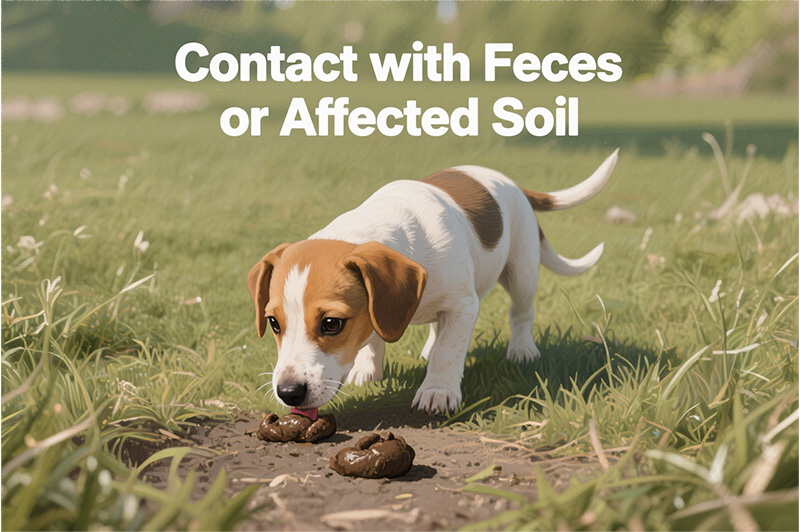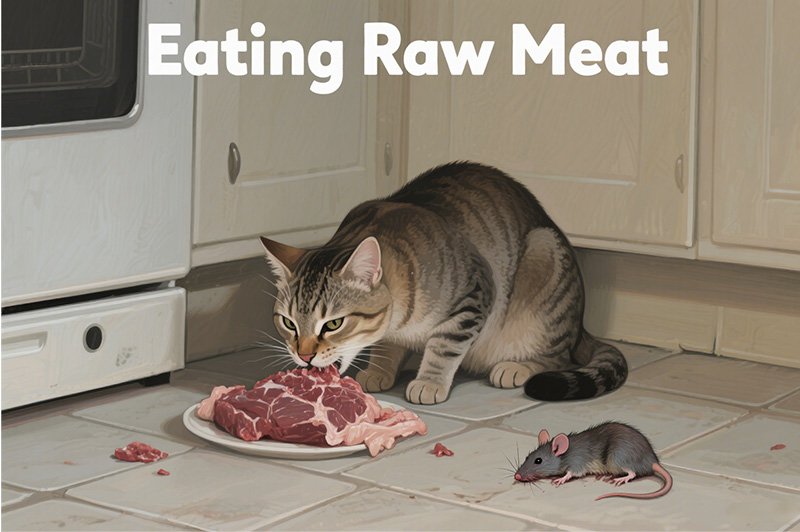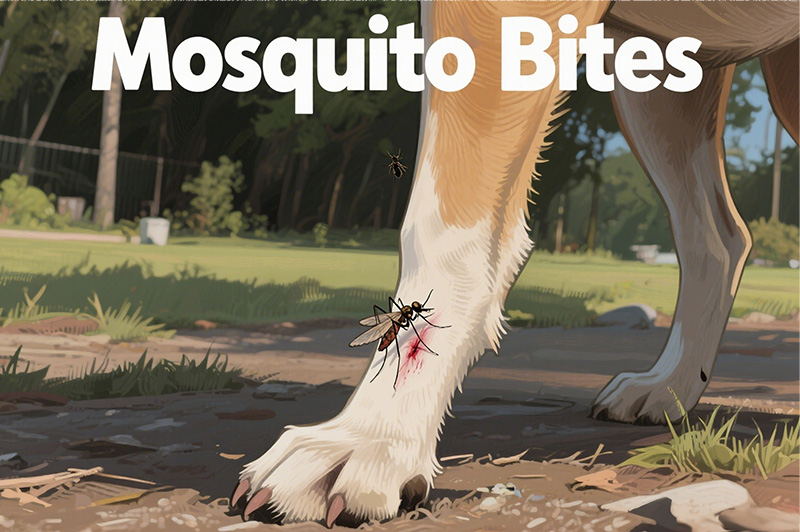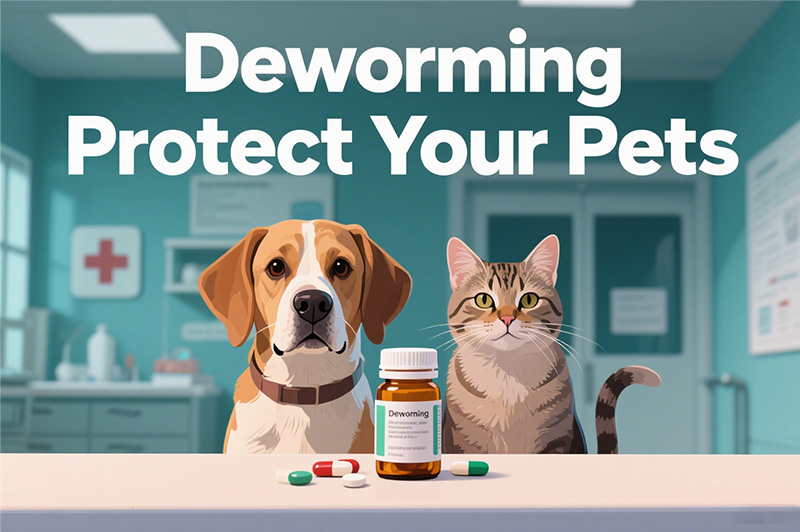

Jan. 04, 2026
Pets can contract worms through the following common pathways:
1. Contact with Feces or Affected Soil
Pets often sniff or eat other animals’ feces, or walk through infested soil. Worm larvae can enter their bodies via this contact—even by licking their feet after exposure.

2. Eating Raw Meat
Raw meat (including prey like mice) may contain roundworm or hookworm eggs/larvae, which develop into worms once inside your pet.

3. Flea Infestations
Fleas carry tapeworm eggs from infected animals, transmitting them to your pet when ingested.
4. Mosquito Bites
Heartworm larvae enter pets through mosquito bites, settling in the heart and blood vessels (unlike other worms that live in the digestive tract).

5.Birth and Nursing
Puppies and kittens can inherit worms from their mothers during birth or through nursing.
6.Deworming: Protecting Your Pets
Deworming medication eliminates existing worms and prevents future infestations. Given that 34% of dogs nationwide (and 54% in southern states) have worms (per Kansas State University Veterinary Health Center), prevention is critical.
Puppies/Kittens: Start deworming at 2–3 weeks old, with treatments every 2 weeks until nursing stops. After that, follow monthly or vet-recommended schedules.
Flea Protection: Year-round flea control (chewables or topicals) kills fleas, eggs, and larvae—often included in deworming plans.
Indoor Pets: Even indoor pets are at risk, as humans can bring fleas or worm eggs into the home on clothing/shoes.
Keep your pet healthy with regular vet visits and deworming. Contact our office to schedule a check-up!